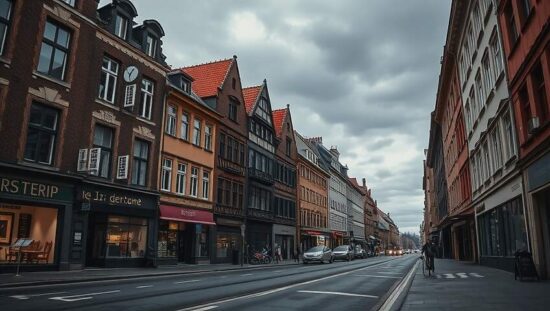Germany’s business confidence has taken a slight downturn in November, signaling a potential slowdown in economic momentum and raising questions about the government’s strategies for sustained growth. The Ifo Institute’s Business Climate Index, a key barometer of German economic sentiment, declined to 88.1 points from 88.4 in October, defying analyst predictions of a marginal increase.
The primary driver of this decline stems from a palpable shift in companies’ expectations for the future. While firms reported a marginally improved assessment of their current situation – a potentially misleading indicator masking underlying anxieties – the overall picture points towards a growing skepticism regarding a rapid economic recovery. This pessimism, particularly prominent in the manufacturing sector, reveals a fragility within the industrial heartland of Europe’s largest economy.
Within manufacturing, a significant drop in expectations, coupled with a slight dip in order backlogs, underscores concerns about diminished demand and a potential contraction in production. Though current business was perceived somewhat favorably, this appears to be a temporary reprieve rather than a sign of robust, long-term strength. The persistent anxieties emanating from the industrial sector necessitate a critical review of government policies aimed at fostering investment and bolstering export markets.
The service sector shows a mixed picture. A slight improvement in the current assessment is counterbalanced by a subtle darkening of future prospects. The transportation and logistics sub-sector experienced a worrying setback, hinting at broader supply chain vulnerabilities that continue to plague German businesses. However, the tourism sector displayed a welcome brightening of sentiment, although its recovery remains contingent on unpredictable global travel patterns.
Retail, traditionally a key driver of consumer spending, has also succumbed to the prevailing climate of uncertainty. Concerns over consumer demand, particularly evident in the struggling retail sector ahead of the crucial holiday season, are prompting fears of a significant dip in overall economic activity. This highlights a critical need for interventions aimed at bolstering consumer confidence and stimulating retail spending.
Finally, within the construction industry, while the current situation demonstrates a positive trend, expectations remain stubbornly pessimistic, constrained by weak demand. This persistent pressure underscores a systemic issue: a lack of sustained investment and a need for targeted stimulus measures to unlock the sector’s full potential.
The data collectively suggests a more nuanced and potentially problematic economic landscape than previously anticipated. The slight improvement in the current situation shouldn’t be misinterpreted as a return to robust growth. Instead, it serves as a stark reminder of the ongoing challenges facing the German economy and raises questions about the efficacy of current governmental strategies needed to tackle future economic storms.





